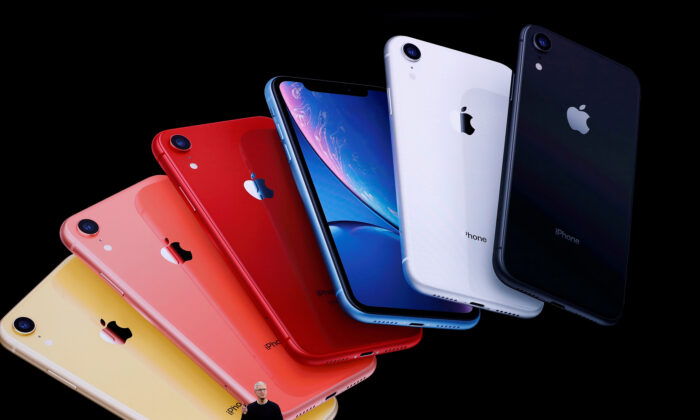Huawei Security Risks Front and Center as West Looks for Alternatives
News Analysis
Apple senior management rejected its staff’s 2015 recommendation to begin globally diversifying its concentrated China supply chain, The Wall Street Journal reported.
Most globalized technology companies have suffered some sales and supply chain dislocations due to China’s coronavirus outbreak. But Apple production output has been “crippled” due to its supply chain concentration around the Longhua Science & Technology Park in southern China’s Shenzhen Province, according to an investigative report published by the Wall Street Journal (WSJ) on Mar. 3.
Coming off of a strong 2019 year-end sales associated with the September release of the iPhone 11, Apple guided Wall Street analysts in January that it would achieve record quarterly revenue of between $63 billion to $67 billion. But after advising investors in mid-February that projections were no longer reliable due to the COVID-19 coronavirus, Apple stock value plunged by over $200 billion before a modest recovery.
Based on WSJ interviews with sources familiar with the 2015 proposal, Apple CEO Tim Cook and senior executives were presented with a plan to expand production of at least one product to Vietnam. Due to the sophisticated logistics associated with its supply chain sourcing and customer mandated ISO 9000 certification requirements for final assembly, the plan detailed the need for a multiyear strategy to train workers and create a new “cluster” of component suppliers outside of China.
Combined with the normal production snafus based on human error, Asia has been subject to disruptions due to extreme weather events, earthquakes and political upheavals. Such disruptions risk accruing high costs, creating negative customer experiences, and harming brand reputations. That explains why most tech device manufacturers employ sophisticated disaster recovery strategies to mitigate risks by scattering production to a number of geographically segregated locations.
When Tim Cook was recruited in 1998 by Steve Jobs to rehabilitate the operations of the near-bankrupt Apple Computer, he saved cash by rapidly closing Apple-owned U.S. manufacturing facilities and outsourcing production to Original Device Manufacturers (ODMs). Apple’s biggest ODM is Taiwan-based Hon Hai Precision Industry Co. Ltd. (Foxconn), which is the biggest ODM in the world with about 250,000 employees.
Foxconn has manufacturing sites in Taipei, Suzhou, Mexico City, Madrid and Cleveland, but most of its manufacturing is done in China. Apple benefits by Foxconn’s assembly expertise and enormous economies of scale. Of the $1,099 that Apple charges retail customers for its flagship iPhone 11 Pro Max, Foxconn is only paid about $21 per unit.
Apple senior managers rebuffed the 2015 disaster recovery plan and doubled down on China as a “stable, efficient, low-cost manufacturing base with an abundant network of suppliers that have helped cement Apple’s profitability,” according to the WSJ report.
Apple has been heavily impacted by the combination of the 18-month Sino-U.S. trade war and the coronavirus outbreak that shut down production and logistics in China. But CEO Cook told Fox Business Network on Feb. 28 that China is getting coronavirus under control and Apple “will not make a wholesale fundamental change.”
The WSJ highlighted that Apple has started to experiment with diversifying a small amount of production outside of China, including assembly of wireless earbuds in Vietnam, lower end iPhones in India, and some Mac Pro computers in Wisconsin. But there is no intention of a change to Apple’s China-centric manufacturing strategy.
The Epoch Times reported on Feb. 29 that Microsoft and Google are both moving faster to shift electronic device production from China to Vietnam and Thailand in Southeast Asia. Both companies are intent on expanding their consumer hardware offerings to complement their software and cloud-based offerings in an effort to mimic the customer ecosphere that drove Apple to become the most valuable company on the planet.
This article is from the Internet:Apple in 2015 Rejected Diversifying China Supply Chain
Biden: Candidates Might Need Secret Service After Rally Disruption
